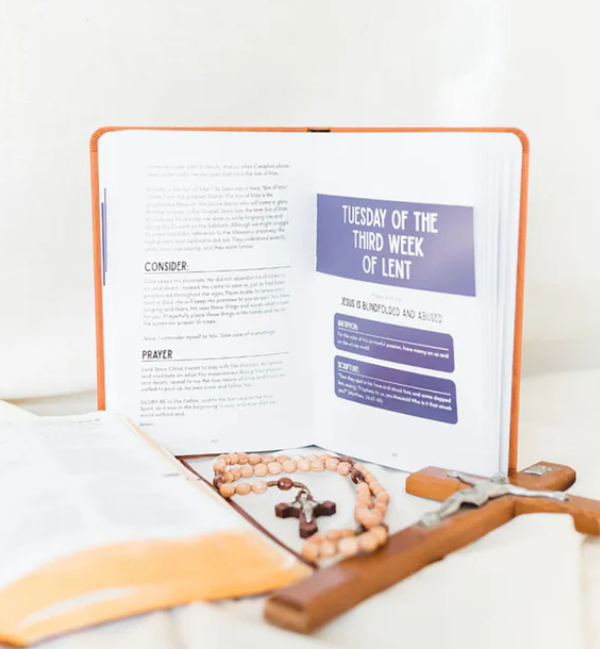By an Oblate Who’s Still Learning to Listen
Summer can be a strange mix for me of rest and restlessness. The light lasts longer. There is more time in the day to get things done. But my routine gets thrown off. I'm happy for a less scheduled life, but also find myself a little scattered. I think it has always been like this for me - even when so many of my children were young, but it is still apparent now, as I am adjusting to a quieter routine.
And yet I recognize that the rhythms of summer present a unique spiritual opportunity.
As a new Benedictine Oblate, I’ve been reading through the Rule of St. Benedict and trying to apply its wisdom to my everyday life. St. Benedict wrote his Rule for monks, but it’s meant for anyone seeking God sincerely and steadily. I've recently discovered four practices from the Rule that have helped me grow in grace, even during the less structured months of summer. I'm calling it my Summer Rule of Life because I realize that while it may appear simple, it likely has serious and holy implications for the way my summer will turn out.
1. Rise Immediately and Pray First
In Chapter 43 of the Rule, St. Benedict emphasizes punctuality in rising and prayer: “Nothing is to be preferred to the Work of God.”
For me, that means I need a few little details to be set forth the night before. One...coffee. I'm a morning person, but coffee is a necessity, so I've learned to prep it the night before. Two..my Benedictine Prayer book needs to be next to my bed (basically the Liturgy of the Hours) because I try to pray Lauds as soon as I get up. Lauds (Morning Prayer) is one of the principal hours of the Liturgy of the Hours (also known as the Divine Office), and it is specifically oriented toward praise—hence the name Lauds, which comes from the Latin word laudare, meaning “to praise.”
The first words of Lauds are always a consolation to me as I begin my day... "O God, come to my assistance. O Lord, make haste to help me." (Psalm 70:1).
I've noticed that starting the day in praise sets the tone for everything else. I can tell when I skip it. When I keep the habit, I see things like interruptions, messes, and changes in plans as part of a bigger picture. That morning's praise can change the rest of the day's perspective.
“Let us arise then at last, for the Scripture stirs us up, saying: ‘It is now the hour for us to rise from sleep’ (Rom. 13:11). Let us open our eyes to the light that comes from God...”
—Rule of St. Benedict, Prologue 8–9
2. Detach from the World and Yourself
St. Benedict doesn’t mince words. In Chapter 4: The Tools of Good Works, he reminds us: “You are not to act in anger or nurse a grudge. Do not love your own will, nor take pleasure in anything unless it is according to the will of God.”
One practice that helps me with this is the nightly examen. I love to pray Compline (Night Prayer) with my family (or I pray it alone if everyone’s gone or scattered). Within it is a private examination of conscience, an opportunity to review the day. I've started to think about not just the sins I commit, but also my attachments. What did I cling to that wasn’t of God? What made me restless, annoyed, or self-focused? I can often trace my attachments to a source for sin, even if just venial. I think that is one of the reasons St. Benedict spoke often in his rule about being detached.
The Rule also teaches to “keep death daily before your eyes”, not to be morbid, but to remember what matters most. This is part of recognizing what we are attached to and how we need to remember eternity.
“Yearn for everlasting life with holy desire. Day by day remind yourself that you are going to die.”
—Rule of St. Benedict, Chapter 4
3. Practice Holy Listening
The Rule of St. Benedict begins with one word: Listen. Not with your ears only, but with the “ear of your heart.” This is contemplative receptivity—something my often noisy, distracted life desperately lacks.
Lectio Divina is a treasured Benedictine practice. It’s not just “reading the Bible.” It’s letting the Word read you. I have not yet fully incorporated Lectio Divina into my daily routine, but I am practicing silence. I am learning how to listen. In whatever Psalm I have read in the morning during Lauds, I try to also think about it throughout the day.
One unexpected gift of summer is the way it slows things down. The pace shifts. There are fewer rigid schedules. The noise of constant obligations softens, even just a little. And in that margin, I’ve found I can listen a little better to the Word of God, and to what He may be gently asking of me.
“Listen carefully, my son, to the master’s instructions, and attend to them with the ear of your heart” (Prologue 1). Summer gives me the space to practice that—not perfectly, but more intentionally. The ear of the heart is something new to me, and I am starting to understand its nuance, not only in reading scripture and in prayer, but also in my life with others - my husband, co-workers, and kids.
“What, dear brothers, is more delightful than the voice of the Lord calling to us? See how the Lord in His love shows us the way of life.”
—Rule of St. Benedict, Prologue 19–20
4. Establish a Rhythm—With Ora et Labora
St. Benedict knew the human heart needs balance: ora et labora—prayer and work. We are spiritual beings, but also embodied ones. We need order.
Summer throws us off our usual rhythms. But touchpoints of rhythm can make a difference in a day. The Morning Offering or Lauds, an Angelus at noon, Compline or a Psalm at night, help to reorient the day. And yes, so can chores and other work we have to do. St. Benedict gave instructions for setting the table and cleaning up, because he understood that those things, too, can be done with God.
When we live by ora et labora, prayer doesn’t stay confined to church or morning devotion; it begins to permeate the day. Prayer becomes the root of all our actions, and even our labor becomes prayerful. That’s powerful for the spiritual life because it reminds us that God is not just in the obvious moments, but in the folding of laundry, the answering of emails, the stirring of soup. “They are truly monks when they live by the labor of their hands.” (Rule of St. Benedict, 48). All moments are sacred, if we allow them to be, because God is in the present moment.
This, for me, is the most surprising part of practicing the Rule of St. Benedict and incorporating it into daily living. I'm learning to see God in everything that happens. Even if I don't see Him immediately, it doesn't take long for me to recognize His touch.
A Final Thought
The spiritual life isn’t about doing more. It’s about choosing what brings us closer to Christ. As an Oblate, I am still learning to shape my days, not around productivity or even peace, but around Christ Himself. It is in those daily anchor points that I am reminded to listen with the ear of the heart. Summer is the perfect time to incorporate this and other practices into my daily life.
“Let us open our eyes to the light that comes from God, and our ears to the voice from heaven that every day calls out this charge: If you hear his voice today, do not harden your hearts.”
—Prologue, Rule of St. Benedict, v. 9–10
How do you keep your soul nourished in the slower rhythm of summer?
























